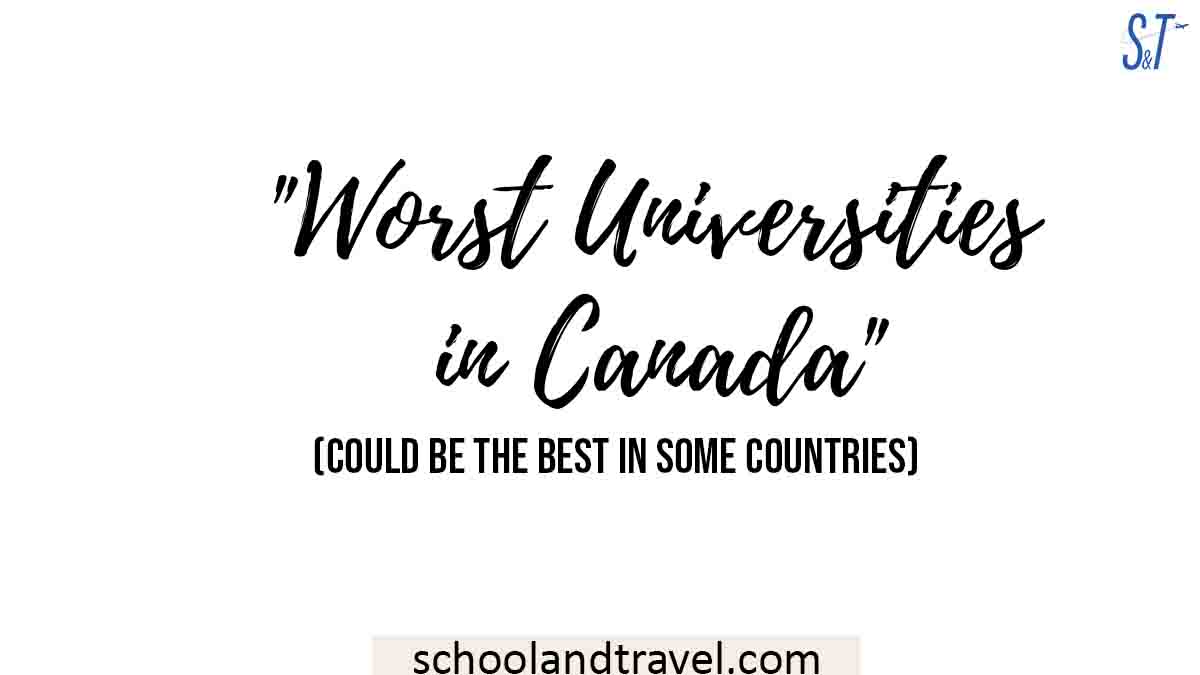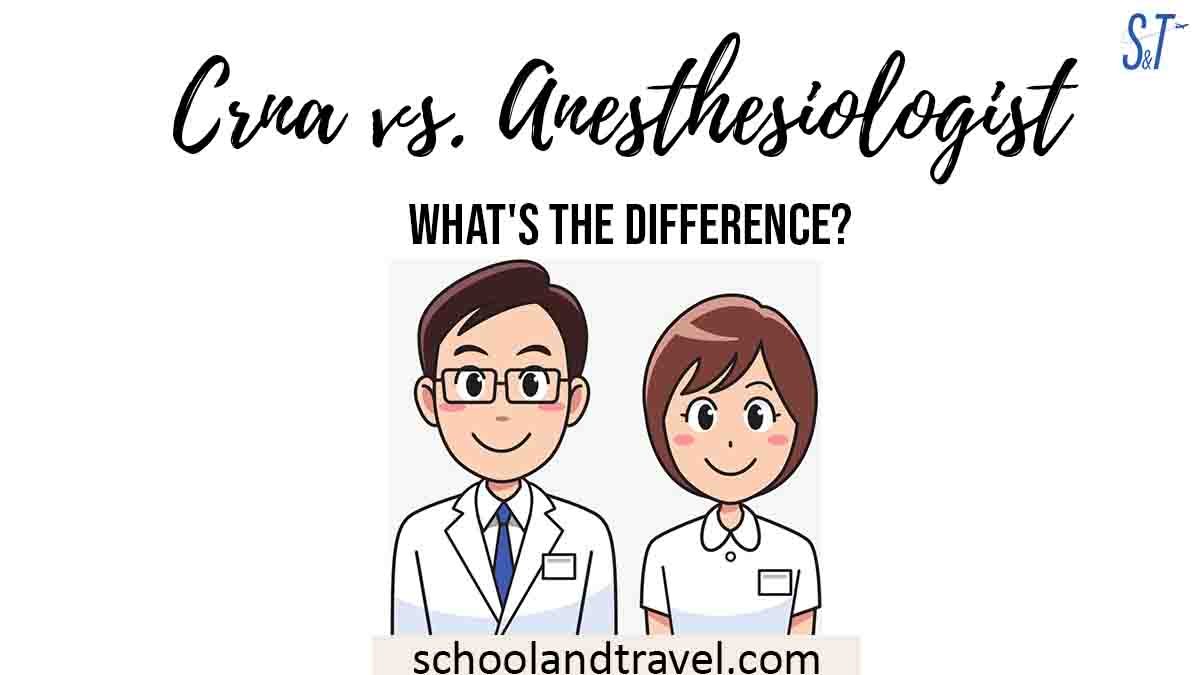Canada is generally known for having a high standard of education.
Many of its institutions have a pretty high ranking when a list of the best universities in the world is made.
Moreover, some universities in Canada are still regarded as the “worst ranking universities in Canada.”
However, it is crucial to emphasize that these universities do not receive the lowest ranking because they are inherently awful; several schools in Canada are better than them.
This article will talk about the five worst-ranked universities in Canada and offer study tips to help students at these schools do well in school.
What Are The Five Lowest-Ranking Universities In Canada?
Here are the five lowest-ranking universities in Canada:
1. Brandon University
Brandon university is located in Brandon, Manitoba, Canada. It was established in 1889.
However, major-ranking organizations rate it as one of Canada’s lowest-ranked universities.
The school offers degrees to undergraduates in both sciences and liberal arts, with over 3,000 but fewer than 3,500 students enrolled each year to partake in the school’s full-time and part-time programs.
This school mainly has undergraduate students, with a sprinkle of graduate students.
Nevertheless, compared to other schools, it has a much lower student population.
This population reduction often implies that there are usually enough resources to take care of the needs of all its students.
Some of the faculties found in this school include;
- Faculty of Arts: The Faculty of Arts at Brandon University offers courses of study in all the major disciplines. Faculty members research many different areas and use what they learn to teach and give lectures.
- Faculty of Education: The Faculty of Education tries to create a learning environment for teachers, researchers, and community leaders that is open to everyone and centered on the student.
- Faculty of Science: Brandon University’s small classes allow students to talk to professors in and out of class, which is a great way to learn.
- Faculty of Health Studies: The health studies faculty offers undergraduate and graduate programs.
- Faculty of Graduate Studies: The graduate programs include education science, music studies, health studies, and the arts.
2. St. Thomas University
St. Thomas University is a citadel of higher learning established in 1910 by the Roman Catholic Church.
The university has been ranked as one of the worst universities in Canada by major ranking organizations.
It is located in New Brunswick and specializes in offering degrees in the liberal arts.
Like many other least-ranked universities, this one has a low population of fewer than 2000 students, most if not all of whom are undergraduates.
Some might say this school is better for students who like smaller schools. The university offers degrees such as;
- Bachelor of Arts: A bachelor’s degree in the arts will expose you to various academic subjects. You’ll be able to broaden your knowledge, experience, and perspective by tailoring your degree to your interests—both those you already have and those you find along the way.
- Bachelor of Applied Arts: St. Thomas University offers a Bachelor of Applied Arts (BAA) in criminal justice and gerontology. Applied art programs are different from BA programs because they combine the study of liberal arts with training in technical skills.
- Bachelor of Education: The Bachelor of Education programs at this renowned university take a cross-disciplinary approach to teaching and learning while emphasizing inclusionary teaching approaches.
- Bachelor of Social Work: The Bachelor of Social Work curriculum emphasizes understanding the structural underpinnings of social problems in Canadian society.
3. Cape Breton University (CBU)
Cape Breton University, located in Cape Breton Regional Municipality, Nova Scotia, Canada, was established in 1951.
It is, however, ranked as one of the worst universities in Canada by major ranking institutions.
It is also made up of undergraduate and postgraduate students, with most of its population being undergraduates.
It offers full-time and part-time degrees to suit its students’ varying needs.
However, this has accounted for over 5000 students, more than the least-ranked universities.
Major faculties:
The school has four major faculties, including;
- School of Arts and Social Sciences: The School of Arts and Social Sciences (SASS) lays a solid foundation for your desired future. With such a diverse choice of programs, you can explore your passions, develop your skills, and find your specialty.
- School of Professional Studies: CBU’s School of Education and Health (SEH) dedicates itself to giving students the skills and knowledge they need to make a difference in people’s lives and shape the future. SEH trains students to be on the front lines of these essential services.
- Shannon School of Business: Cape Breton University offers world-renowned programs through the Shannon School of Business (SSOB). The SSOB is a unique opportunity for undergraduates and postgraduates to earn the business degree they need to succeed.
- School of Science and Technology: The School of Science and Technology (SST) is home to a wide selection of science, engineering, and technology courses.
- School of Nursing: The School of Nursing is at the center of this commitment. Through innovative research and teaching, it helps meet the changing needs of the healthcare system in Cape Breton and the rest of Nova Scotia.
4. Laurentian University
Laurentian University is one of Canada’s largest bilingual providers of distance education.
The university, which is located in Greater Sudbury, Ontario, was established in the year 1960. It is, however, one of Canada’s least-ranked universities.
The school offers undergraduate and postgraduate degrees, although it specializes mostly in undergraduate degrees.
The school has six main departments, and students can get bachelor’s degrees, master’s degrees, and doctoral degrees.
The five major faculties include;
- Faulty of Management: Accounting, Human Resources Management, Business Administration, Finance, etc.
- Faculty of Health: Nursing, Health Promotion, Kinesiology, etc.
- Faculty of Science, Engineering, and Architecture: Biology, Chemistry, Computer Science, etc.
- Faculty of Arts: History, sociology, economics, etc.
- Faculty of Education: Education (B.Ed.), Education (concomitante), Education (concurrent B.Ed.), etc.
You can get a certificate from Laurentian that will show off your language skills in both official languages and give you an advantage in the job market.
5. Mount Saint Vincent University
Mount Saint Vincent University, located in Halifax, Nova Scotia, Canada, was founded in 1973.
Despite having a plethora of research centers (16), the school is still ranked as one of Canada’s worst universities.
This school’s 16 research labs and other resources help students build and develop their talents. It has a population of over 3000 undergraduates and over 1000 postgraduates.
The school offers various undergraduate degrees in arts, science, education, and professional studies. It also provides about 13 graduate degrees in human nutrition, women’s studies, and psychology.
The seven major faculties include;
- Faculty of Arts: History, French, English, etc.
- Faculty of Science: Chemistry, Biology, Physics, Statistics, etc.
- Faculty of Professional Studies: Applied Human Nutrition, Business Administration, Public Relations, etc.
- Faculty of Education: Bachelor of Education, Curriculum Studies, Educational Psychology, etc.
- Faculty of Graduate Studies: Public Relations and Communication Studies, Applied Human Nutrition, etc.
- Certificates & Diplomas: Accounting, Business Administration (Certificate), Business Administration (Diploma), Community Leadership, etc.
- Academic Resources: Library, Teaching and Learning Center, Online Learning, Experiential Learning, Co-operative Education, etc.
How To Excel In Your Academics At College
It does not matter if the school you attend is high-ranking or low ranking; you can excel in your academics thereby applying the tips below:
1. Keep up with your studies
Being present in class is crucial to your academic success.
It helps you learn more about the material covered in the course and get your questions answered quickly.
In addition to encouraging you to maintain your academic progress, class attendance provides an ideal setting to forge relationships with fellow students and faculty.
Don’t miss any lessons, for whatever reason.
2. Participate actively in your studies
Another key to academic success at any community college is engaging in active learning.
Note-taking and raising questions in class about the material you don’t comprehend will help you become an engaged learner.
Learning actively also includes contributing to class discussions and answering questions.
Your memory will greatly benefit from engaging in active learning.
3. Check with your teachers
Mentoring is another important role that professors play in addition to teaching.
So, they’re the finest people to ask for advice if you’re having trouble with anything related to your studies.
In addition, feel free to visit their offices if you need further explanation of anything covered in class.
Also, make sure they remember you as their student; this can come in handy if you need letters of recommendation to apply for scholarships.
4. Start collecting your study resources right away.
When a course’s curriculum becomes available, it’s time to start looking for study materials to help you succeed in that course.
This will give you a better idea of how much time you need to devote to studying and how much content you need to cover.
5. Do your best to study
Success at any college requires a serious commitment to learning.
No matter how hectic your day was, don’t let the material covered in class slip through the cracks because you didn’t read it.
Remember to try your best on all your tasks and hand them in on time.
Since most assignments are worth a significant portion of your grade, doing well on them will increase your knowledge and your performance in the course.
6. Focus on the material presented in class
The curriculum of each course is unique at a college.
Some courses will only touch on a few subjects, while others will provide a broad and in-depth overview.
But don’t go beyond the scope of your class’s required reading; only read what you’ll need to know to succeed.
Reading everything that isn’t directly related to your academics is useless and will lead to failure.
7. Studying without interruptions is essential
To study seriously, you need to be somewhere completely quiet and undisturbed.
Keep your cellphone out of sight when you’re not using it to study to avoid being distracted by the urge to check Facebook or Instagram every few minutes.
If you find listening to music while reading distracting, try reading in a less noisy environment.
Try not to let anything divert your attention.
8. Keep up a nutritious eating regimen
Maintaining a healthy diet is just as critical as studying for the exam.
If you don’t take care of your body and give it the fuel it needs, you won’t have the stamina to put in the hours of study time you’ll need, and you’ll have trouble concentrating.
9. Study with multiple people
Group study with friends will boost your performance in school.
When you study with people, you can learn more about the subject, overcome procrastination, accomplish extra, and significantly improve your problem-solving skills.
Studying in a group also helps you learn how to collaborate with others.
So, make group study a regular part of your academic routine.
10. Participate in mock examinations
Preparing for actual exams by simulating their conditions is yet another key to success in any college.
If you want to do well on your final examinations, you need to take practice tests to see where you stand in your knowledge and where you still need to study.
Taking practice tests regularly will also help you relax, improve your speed and accuracy, and make your memory much better.
Conclusion
It isn’t easy to compose a list of this nature, given how excellent the educational system in Canada is.
However, this article contains 5 of the worst-ranked universities in Canada, which, as previously stated, doesn’t make them worthless.
Moreover, in addition to the tips listed above, you can excel in your studies at any Canadian university by staying organized, taking advantage of the resources available in the school, and taking breaks when necessary.
Awesome one; I hope this article answers your question.
Editor’s Recommendations:
- 7 Best Christian Schools In Canada (FAQs)
- 7+ Best Universities for Kinesiology in Canada (FAQs)
- 7 Best DLI Approved Colleges In Canada (FAQs)
- 7+ Top Art Schools in Canada (FAQs)
- 25 Blacklisted Colleges in Canada (FAQs)
- How To Become A Doctor In Canada From Another Country (FAQs)
If you find this article good, please share it with a friend.





